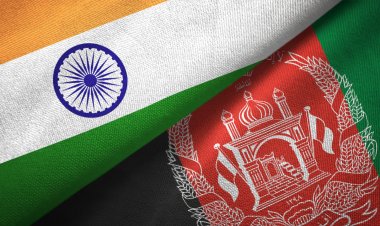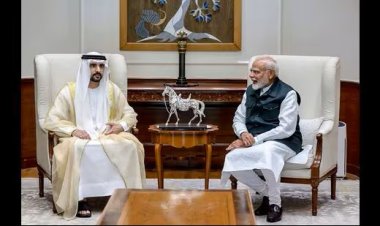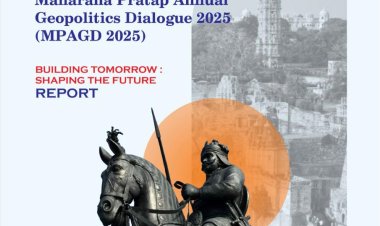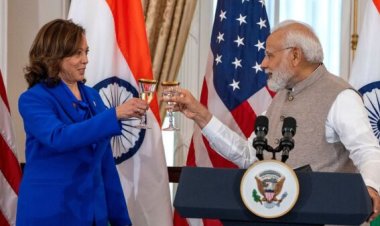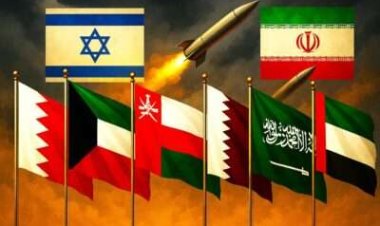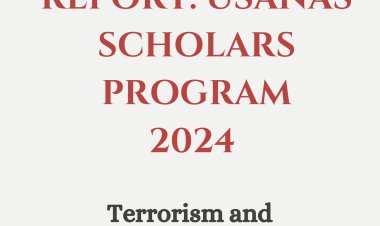ISI–Dawood nexus turns Bangladesh into a narco-terror state
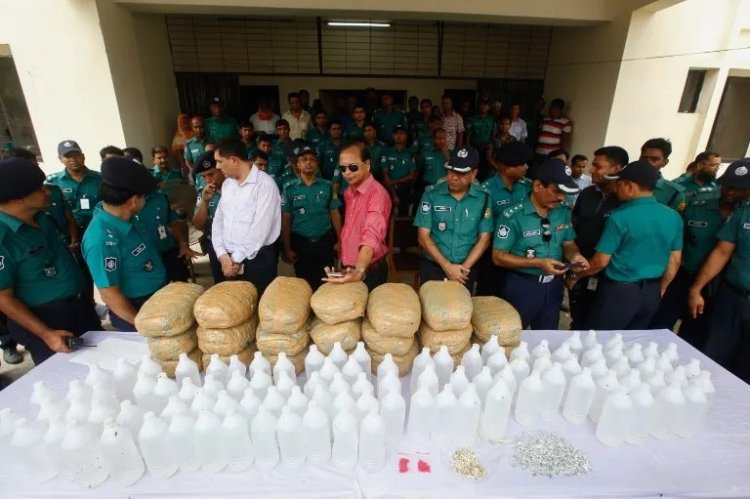
Analysis
By Salah Uddin Shoaib Choudhury
Bangladesh is facing a new and insidious threat. Under the Islamist-driven regime of Muhammad Yunus, the country is fast turning into a regional hub for narcotics trafficking and terrorism. With Pakistan’s Inter-Services Intelligence (ISI) and Dawood Ibrahim’s global crime syndicate D-Company now using Bangladesh as a staging ground, the nation’s sovereignty and South Asia’s stability, hang in the balance.
On October 5, 2025, customs officials at Chittagong Port discovered 25 tons of poppy seeds hidden inside a shipment of bird feed imported from Pakistan. The importer, Adib Trading of Chittagong, had declared the cargo as 32 tons of bird feed. Acting on a tip-off, customs officers halted its release, and laboratory tests later confirmed that most of it was narcotics-grade poppy seeds - a Class ‘A’ drug under Bangladesh’s Narcotics Control Act 2018.
The concealment was professional. Sacks of genuine bird feed were placed near container doors while the poppy seeds were buried deep inside - a classic tactic of state-linked drug cartels. Investigators soon traced the shipment’s origin to Pakistan, where similar smuggling methods have long been tied to ISI operations.
The incident exposes a dangerous policy loophole created by the Yunus government. On September 29, 2024, it issued a gazette notification excluding shipments from Pakistan from mandatory inspection under the “National Selectivity Criteria”. This effectively allowed Pakistani cargo to bypass customs scrutiny.
That decision, combined with the removal of security clearances on December 2, 2024 for Pakistani nationals entering Bangladesh, opened an unchecked corridor for smugglers, extremists, and intelligence operatives. It was an open invitation to Pakistan’s narco-terror networks - and they wasted no time exploiting it.
The result was predictable. Within months, Pakistan-origin consignments - now free from scrutiny - began entering Bangladesh with unprecedented ease.
In a December 7, 2024 interview with Zee News, Pakistan Muslim League–Nawaz (PML-N) leader Irshad Ahmed Khan openly admitted that Pakistan was sending weapons and drugs to Bangladesh as part of a plan to “liberate Bangladesh from Indian influence”. This public confession validated what regional intelligence agencies had long suspected - Islamabad is actively working to destabilize Dhaka and undermine India’s eastern flank through narcotics and subversion.
Together, these dual policy shifts - no customs inspection and no security clearance - have created the perfect storm. Terrorists, smugglers, and ISI operatives now enjoy unhindered access to Bangladeshi soil. The implications extend beyond national borders: Bangladesh risks becoming the new epicenter of a Pakistan-led narco-terror economy targeting India and Southeast Asia.
Pakistan’s descent into narco-terrorism is neither accidental nor recent. The nexus between narcotics and jihad dates back to the regime of General Zia-ul-Haq (1978–1988), when the ISI institutionalized drug trafficking as a means of financing covert operations. This strategy, often described as “narco-jihad”, used the proceeds from heroin and opium to fund Islamist militias across Afghanistan, Kashmir, and beyond.
A 1991 revelation by then–Prime Minister Nawaz Sharif confirmed that senior Pakistani generals had proposed funding “covert wars by selling heroin overseas”. The plan was implemented through intermediaries and became the foundation of a state-sponsored criminal enterprise that continues to operate today.
At the heart of this transnational network lies Dawood Ibrahim - one of the world’s most notorious narco-terrorists. Dawood’s D-Company, with its headquarters in Karachi and operations spanning Dubai, East Africa, and Europe, functions as ISI’s commercial arm for illicit finance. The US Treasury Department has designated Dawood as a global terrorist for his role in drug trafficking, arms smuggling, and financing Islamist extremism.
Dawood’s criminal empire merges seamlessly with ISI’s intelligence infrastructure. Using maritime routes through the Arabian Sea and the Bay of Bengal, his network channels heroin, synthetic opioids, and counterfeit Indian currency into South Asia. Bangladesh’s strategic ports - Chittagong and Mongla - now serve as convenient transit points for these operations under the Yunus regime’s permissive policies.
Afghanistan remains the source of most of the world’s heroin, while Pakistan acts as the principal gateway. Despite the Taliban’s 2022 opium ban, UN reports in 2024 noted a nearly 20 percent increase in cultivation. The drugs are processed in Pakistan’s tribal areas and shipped via Karachi or Gwadar, generating billions in illicit revenue annually. These funds are laundered through hawala networks, counterfeit currency, and fake charities - sustaining jihadist organizations such as Lashkar-e-Taiba, Jaish-e-Mohammed, and Hizbul Mujahideen.
Over time, ISI’s narco-operations have expanded their footprint beyond South Asia. Dawood’s lieutenants are reported to have developed ties with African syndicates and extremist groups like Boko Haram, using established drug corridors through Nigeria and East Africa to move heroin into Europe and India. The ISI’s collaboration with Iran’s proxy networks - including elements linked to Hamas - adds yet another layer to this intricate web, blending narcotics with ideological warfare.
Following the Jihadist Coup of 2024 - Pakistan’s military establishment seized the opportunity to reinsert itself into Bangladesh’s political and security landscape. Islamabad now views Dhaka as a soft underbelly for conducting proxy operations against India. The Yunus regime’s pro-Pakistan, anti-India orientation has made Dhaka an unwitting collaborator in this process.
The ISI-Dawood alliance leverages this framework with ruthless efficiency. Narcotics shipments finance terror cells; counterfeit currency destabilizes economies; and Islamist propaganda spreads radicalization. The result is a hybrid war - fought not with tanks and missiles but with heroin, ideology, and corruption.
Despite the mounting evidence of Pakistan’s state-sponsored narco-terrorism, international institutions remain largely silent. The United Nations’ selective outrage illustrates a troubling double standard. When, on September 2, 2025, US President Donald Trump authorized a “kinetic strike” against Venezuelan narco-terrorists of the Tren de Aragua cartel, UN officials condemned it as “extrajudicial execution”. Yet, they have shown no such concern over ISI’s ongoing narcotics-fueled jihad across South Asia.
This silence is not coincidental. UN Secretary-General António Guterres and High Commissioner Volker Türk are known to share personal ties with Muhammad Yunus and have been accused of shielding his regime from scrutiny. Their complicity - whether political or ideological - enables Pakistan’s narco-state agenda to advance unchecked, endangering both regional peace and global security.
The nexus of ISI, Dawood Ibrahim, and radical Islamist networks is no longer limited to South Asia. It extends into Africa, the Middle East, and even Europe, where drug profits are laundered through pseudo-humanitarian organizations claiming to support “pro-Palestine” causes. These funds, in reality, fuel violence, propaganda, and political destabilization in democracies worldwide.
In essence, the ISI-Dawood combine has created a self-sustaining ecosystem - a “narco-caliphate” without borders - financed by drugs, empowered by terrorism, and shielded by diplomatic complicity. Bangladesh’s transformation into a narco-terror transit state completes this triangle of chaos linking Pakistan, Iran, and their proxies.
India, as the region’s democratic anchor, faces the gravest danger. With its 4,096-kilometre border with Bangladesh, much of it porous and lightly patrolled, the risk of narcotics and terrorists slipping through is immense. The infiltration of counterfeit Indian currency, synthetic opioids, and extremist propaganda could destabilize India’s northeastern states, threaten its economy, and inflame communal tensions - objectives that align perfectly with ISI’s long-term strategic doctrine.
Fifty-four years after its independence, Bangladesh once again faces subversion from the same forces that once sought to destroy it - the Pakistani military establishment and its Islamist proxies. What began as a smuggling operation has now evolved into a full-fledged narco-terror project, threatening not just Bangladesh but the entire South Asian region.
Muhammad Yunus’s government, either through complicity or negligence, has allowed this menace to thrive. The ISI–Dawood partnership is not just trafficking drugs; it is trafficking chaos, corruption, and radicalism. If the world continues to look away, South Asia may soon witness a new kind of war - one waged with narcotics, ideology, and fear.
Disclaimer: This paper is the author’s individual scholastic contribution and does not necessarily reflect the organisation’s viewpoint.
Salah Uddin Shoaib Choudhury is an award-winning journalist, writer, and Editor of the newspaper Blitz. He specializes in counterterrorism and regional geopolitics.



